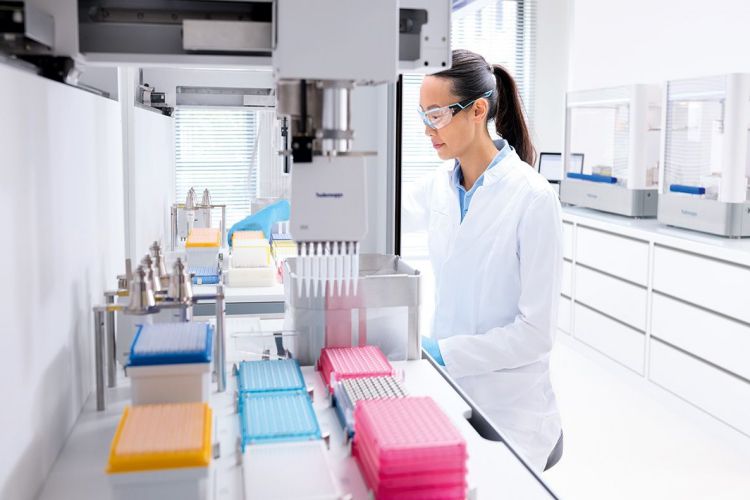Automation is adding efficiency to laboratory processes worldwide, whether it be research, pharmaceuticals, or biotech. Automated liquid handling systems (ALH) assure precision and quality, enhance throughput, and reduce human error. In the race for faster and more certain results, these systems have become a part and parcel of modern labs across the US.
 Enhancing Precision and Accuracy
Enhancing Precision and Accuracy
Manual pipetting can lead to inconsistencies in data. Automated liquid handling systems, preserving consistency through programmed protocols, ensure that liquids are dispensed with great precision, making reproducibility the standard. One study, published in Analytical Chemistry, found that automation reduces pipetting errors by up to 90%, reducing the margin of error in results. Even tiny volume differences may influence the results in such applications as drug discovery and diagnostics. In this respect, automation is essential.
Boosting Throughput and Productivity
High-throughput screening and large-scale experiments call for efficiency. ALH systems process thousands of samples in hours, a process that would take days by hand. This capability leaves researchers free to focus on experimental design and data interpretation rather than being in a state of endless pipetting. Faster results enable research groups to make discoveries more quickly, which is good for sectors like genomics and personalized medicine.
Reducing Contamination Risks
Cross-contamination is a big concern in research and clinical laboratories. ALH systems ensure that direct contact between humans and microbes is no longer necessary, reducing the risk of contamination. Enclosed workstations with disposable pipette tips and sterile automation protocols help to guarantee sample integrity. These factors become particularly important in applications such as PCR testing and microbiology, where any contamination could influence the accuracy of results.
Applications in Drug Discovery and Biotech
ALH systems are used by pharmaceutical and biotech companies for drug screening, compound screening, assay development, and cell culture preparation. They also speed up the process of drug discovery by handling massive chemical libraries with precision. Biotech companies employ automation in genetic sequencing, antibody production, and cell-based testing, so research efforts are less manual. Lab experiments can be carried out with greater consistency and over a broader range if automation is adopted.
Cost Savings and Resource Efficiency
Though automated liquid handling equipment brings in an initial investment, in the long run, it reduces operating costs by cutting down on reagent waste and labor. It ensures that liquid redispensing is done precisely, thus preventing the waste of costly compounds. Many labs report that through improved efficiency and reduced human error, they can earn back their investment in the equipment within two to three years. Such a capability to manage resources well makes these systems an attractive option for growing research facilities.
AI and the Future of Lab Automation
At the same time, artificial intelligence is improving the optimization of ALHs by providing real-time diagnostics and decision-making according to immediate conditions. Machine learning algorithms can be used in many fields to increase the output of liquids by ensuring that techniques for each procedure are arranged most satisfactorily. Cloud-based systems enable remote monitoring and collaboration, thereby changing how research is done. Currently, in the lab, but in the future, we will continue to make labs quicker, more accurate, and invincible against cyberattacks.
Final Thoughts
Automated liquid handling systems are changing what lab efficiency is all about in the USA, rapidly improving accuracy, making it possible to handle large volumes, and cutting out human error completely. If laboratories and pharmaceutical research are reshaping the way we do experiments.
Throw away manual operation, re-cast your lab’s work and keep abreast of the times at the same time—let’s turn to ALH solutions today!

